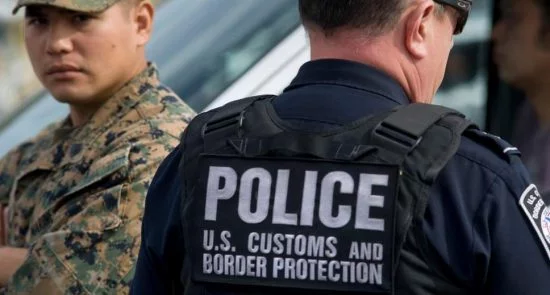Afghanistan, Politics, Social January 13, 2019
Short Link:the Story of an Interpreter who Helped US Troops and Fled Afghanistan
A former interpreter for U.S. troops in Afghanistan was detained Friday after arriving at a Houston airport with his family and threatened with deportation back to Kabul, a legal service advocacy group said, in a move that could jeopardize his life.
Ariana News Agency-
Mohasif Motawakil, 48, was detained by Customs and Border Protection. The agency allowed his wife and five children to be released at 10 p.m. Friday following pressure from lawmakers, said William Fitzgerald, a spokesman for the Refugee and Immigrant Center for Education and Legal Services. An attorney for RAICES is representing Motawakil.
Motawakil served as an interpreter for U.S. troops from 2012-2013, and later as a U.S. contractor, Fitzgerald said. He and his family had been granted special immigrant visas allotted for Afghans and Iraqis who supported U.S. war efforts and endangered because of their work, usually by the Taliban and other militants who consider them traitors and prize their capture.
The Special Immigrant Visa process takes years for many applicants, who must get letters of support from U.S. officials to vouch for them and must demonstrate their lives have been imperiled.
Someone, potentially in the family, opened sealed medical records, prompting CBP to detain the family over concerns the records could have been “faked,” Fitzgerald told The Washington Post. “Then [CBP] said they would be deported,” he said, adding that the family is “confused and traumatized” over the ordeal.
CBP said the family was detained after a routine inspection, but declined to provide more details, citing privacy laws.
“The father remains detained and his wife and children were allowed into the U.S. pending the outcome of his proceedings,” the agency said in a statement Saturday.
A State Department information page instructs immigrants not to open their sealed document packet, but it does not suggest why or warn immigrants about potential consequences. It was not clear why or how the packet was opened.
The State Department referred questions to CBP and declined to comment, citing the government shutdown. The U.S. Embassy in Kabul did not return a request for comment.
An attorney for RAICES has not been able to meet with Motawakil, Fitzgerald said.
“How unjust that this Afghan family, who helped our military, is in same airport as counsel – & yet have been walled off from one another,” Rep. Lloyd Doggett, D-Texas, said on Twitter.
Doggett made calls to CBP, and Reps. Sheila Jackson Lee and Al Green, both Texas Democrats, went to the airport in support of Motawakil, Fitzgerald said.
Thousands of Afghans and their families have received special immigrant visas and resettled in the United States since 2009, when the program began. There were 2,410 principal applicants who arrived with family members in 2018 – a 50 percent decline compared to the previous year.
The number of visa approvals also fell by 60 percent in 2018 compared to the previous year, according to State Department data.
No One Left Behind, an advocacy group for former interpreters, has said heightened vetting measures by the Trump administration was to blame, and waiting years for approval places them in “severely dangerous situations,” said Kirt Lewis, the group’s programs director.
About 19,000 Afghan principal applicants are in some part of the vetting process for the visas, according to the State Department. They are waiting as a resurgent Taliban controls swaths of Afghanistan, prompting former interpreters to go into hiding.
Motawakil’s family was taken in for the night by the Afghan Cultural Center in Houston, though their fate in the United States, along with Motawakil, has yet to be determined, Fitzgerald said.
“The Afghan SIV program offers protection to people who served faithfully along U.S. government personnel and who are in danger because of that service,” said Betsy Fisher, the policy director for the International Refugee Assistance Project. “Surely the U.S. government can resolve a trivial issue with an opened envelope to protect someone who faces persecution as a U.S. wartime partner.”




